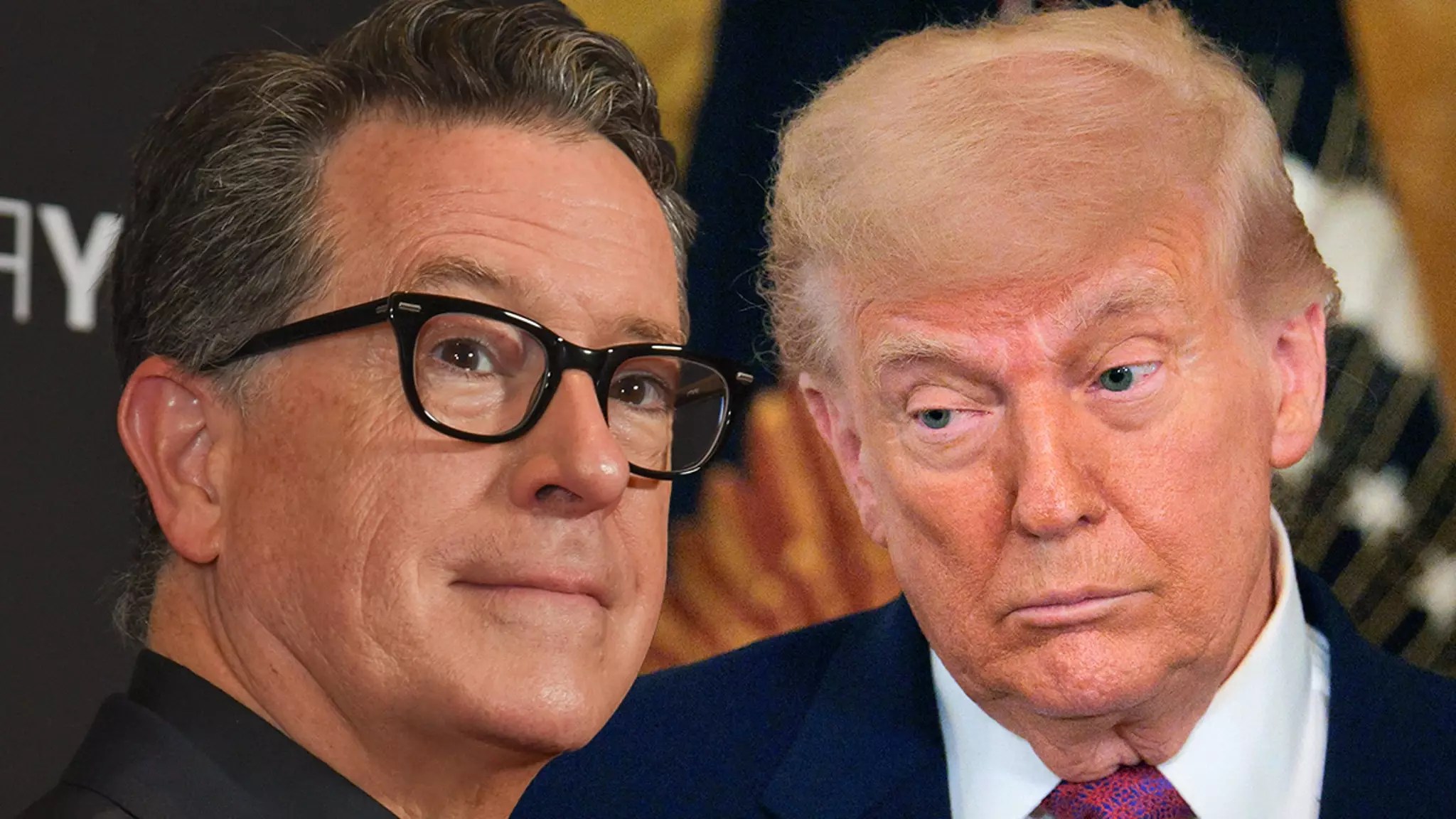In a landscape often characterized by cautious politeness and televised decorum, Stephen Colbert’s unapologetic diatribe against the political establishment and corporate interests signals a fiery shift towards authenticity. His recent comments, marked by raw language and unrestrained honesty, are not merely personal outbursts but a rallying cry for truth-tellers in a time when mediocrity and silence often dominate the public discourse. Colbert’s refusal to hold back, even amid potential professional fallout, exemplifies a larger movement: the desire to confront power directly, without fear of repercussion.
This moment is a testament to the evolving role of media personalities. No longer are they mere entertainers; many have become voices of resistance and critique, especially when faced with the intertwined forces of political corruption and corporate greed. Colbert’s blistering words—“Go f*** yourself”—aimed at a sitting president epitomize that shift. He is signaling to audiences that the age of docile journalism and scripted satire is over; truth must be wielded fiercely, regardless of political convenience. His stance resonates with viewers hungry for honesty, especially in an era where many feel the institutions are compromised or disinclined to challenge authoritarian tendencies.
The Power of Celebrity Solidarity and Political Commentary
The collective support from Hollywood figures and media veterans underscores a broader societal hunger for authenticity and integrity. Colbert’s peers—Jimmy Fallon, Seth Meyers, Jon Stewart, and others—have publicly voiced their backing, emphasizing that the fight against corruption is a shared moral imperative. Their solidarity demonstrates that even within an industry sometimes criticized for superficiality, there exists a deep-rooted desire to uphold journalistic and artistic integrity in the face of corporate censorship or political intimidation.
This unified front reveals a crucial insight: celebrity influence is not just about entertainment but also about shaping discourse. When icons like Jon Stewart highlight the importance of Colbert’s ascendancy, they reinforce that truth-telling remains a vital, courageous act. Their public affirmations serve both as encouragement and as a reminder that societal progress depends on those willing to stand up and speak frankly—especially when institutions attempt to silence dissent through settlement hush money or strategic cancellations.
Corporate Silence as a Symptom of Fear
The controversy surrounding CBS and its parent company, Paramount Global, reveals a tangled web of compromise and fear. By paying $16 million to Trump—an act that Colbert unambiguously labels as a “bribe”—the network inadvertently exposes the corrosive influence of money in media. Such settlements are often presented as pragmatic business decisions, but at their core, they threaten to undermine journalistic independence and honesty. Colbert’s critique underscores a bitter reality: corporate interests are often prioritized over truth, with silence or capitulation becoming the default response to political threats.
The timing of Colbert’s fiery commentary—shortly after the announced end of his show—suggests an underlying message: the system is being deliberately manipulated to silence dissenting voices. The claim that the cancellation of “The Late Show” is due to financial reasons appears superficial against the backdrop of political intimidation and corporate capitulation. Instead, this move seems to confirm that the powers-that-be prefer a subdued media landscape, where uncomfortable truths are drowned out or silenced altogether.
The Future of Confrontation and Courage in Media
Colbert’s unfiltered approach emphasizes that truth-telling and confrontational journalism are acts of courage in the current climate. His statement that he is now free to speak without “gloves” is emblematic of a broader moral stance: the time for cautious diplomacy has passed. In a world increasingly driven by misinformation, silence, or superficial rhetoric, the need for outspoken criticism becomes all the more urgent.
While some critics dismiss Colbert’s bluntness, branding it as arrogance or theatrical bravado, the reality is far more profound. His vehement stance is an act of moral rebellion—a refusal to accept the sanitized, corporate-controlled narrative. It is a challenge to all those who believe silence equals safety and that truth should be sacrificed for convenience.
As society wrestles with rising authoritarian tendencies and corporate influence over critical institutions, the significance of voices like Colbert’s can’t be overstated. They remind us that true power lies in the willingness to speak truth at any cost. The question remains whether this newfound boldness will inspire others in media and politics to abandon complacency and confront injustice head-on. The answer hinges on our collective capacity to value honesty over comfort—even if it means risking everything for the sake of integrity.







Leave a Reply